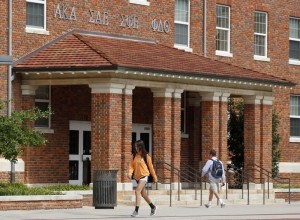Last Monday September 22, Tucker Hipps went missing during a run with his fellow Clemson Sig Ep pledge brothers. By Tuesday, the Clemson Administration suspended activity for all twenty-four fraternities on Clemson’s campus. Their move was no doubt fueled by the quick association of this tragic incident with fraternity hazing. Student Affairs Vice President Gail DiSabatino said in a statement: “It is especially prudent to suspend fraternity activities given the tragic death of Tucker Hipps. There has been a high number of reports of serious incidents involving fraternity activities, ranging from alcohol-related medical emergencies to sexual misconduct … These behaviors are unacceptable and mandate swift and effective action to protect students. There is no higher priority than the safety and welfare of our students.”
By Wednesday, law enforcement officials said that hazing was unrelated to Hipps’ death. Oconee County sheriff Mike Crenshaw said in a statement: “As speculation has and does continue into Tucker’s death, the Oconee County Sheriff’s Office has released all the information that we can into the investigation without compromising the integrity of the investigation and that of the victim and the victim’s family. With that in mind, the Sheriff’s Office will not be releasing any further information regarding our investigation until such a time as we are able to share with Tucker’s family and the public the results of that investigation.”
The national Sig Ep organization has asked the administration to keep its Clemson charter under suspension as it investigates the required runs that Hipps was going on the morning he disappeared. Sig Ep has a zero-tolerance policy on any sort of hazing and will investigate this as a violation of their organizational rules. The Clemson Administration, however, was fully aware of the required runs and that they were a part of the chapter pledge program. This disconnect between the Clemson Administration and the Sig Ep national organization reflects the larger issue of ambiguity in what are acceptable pledge activities and the extent of which chapters can educate and assimilate new members into their personalized organization.
There have been numerous hazing-related deaths–which are incessantly included in any news articles about “X” fraternity scandal–and so accidents like this naturally make any administration jolt. Clemson is in a tough spot, having double-digit complaints mentioning fraternities just this semester. Maybe this was the straw that broke Clemson Greek Life’s back or a perfectly good reason to take control of a system that seems to lack some. It’s hard to criticize an administration from a school I do not attend; I have no context for Greek Life’s relationship with the student body, to the community, and to the administration. But there is a problem when tragic events like Hipps’ death get conflated into a larger talk about the dangerous, outdated, and even evil fraternities. Talks about fraternity associations to sexual assault or uncontrollable binge drinking are unhelpful in capturing the tragedy of Hipps’ death and inappropriate given the continuing investigation’s complete disregard to hazing as related to his death.


Be the first to comment on "Clemson Fraternities Suspended After Student Death"